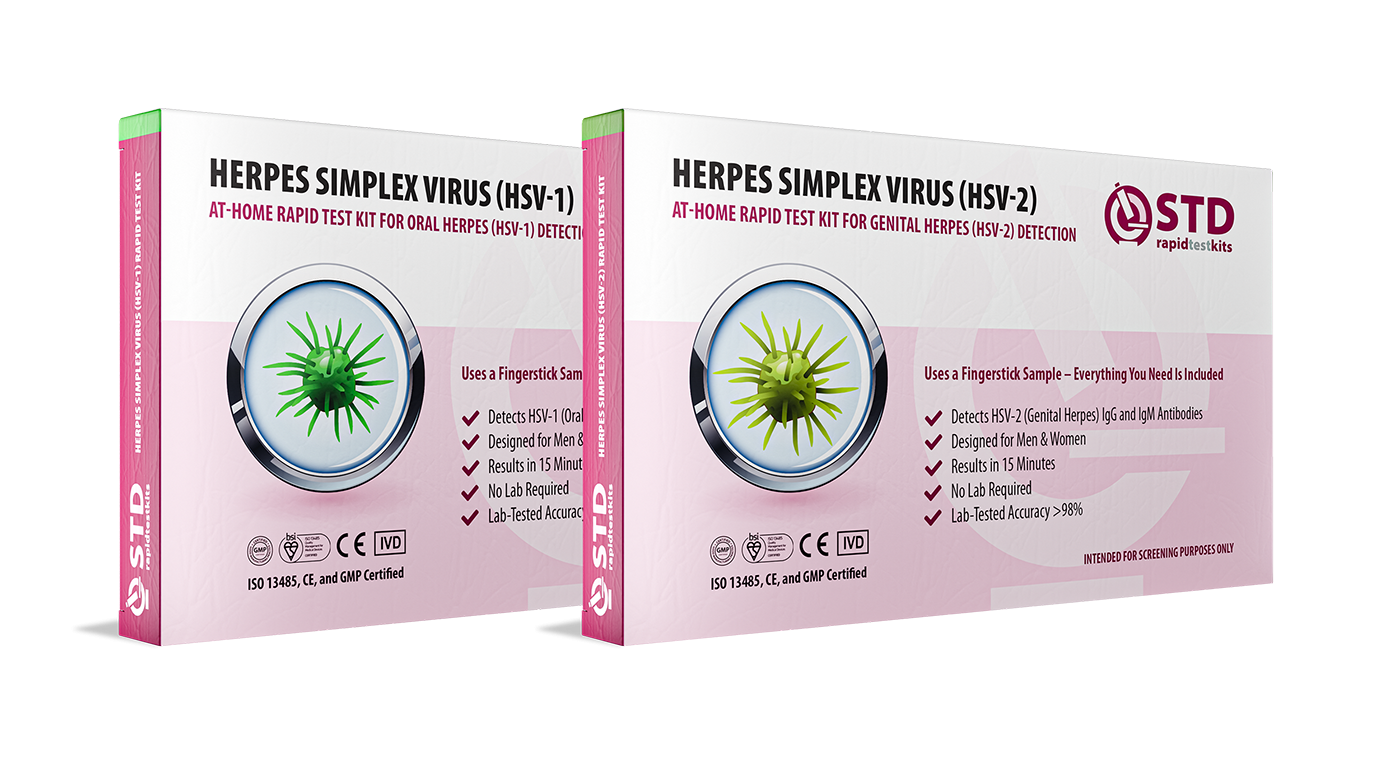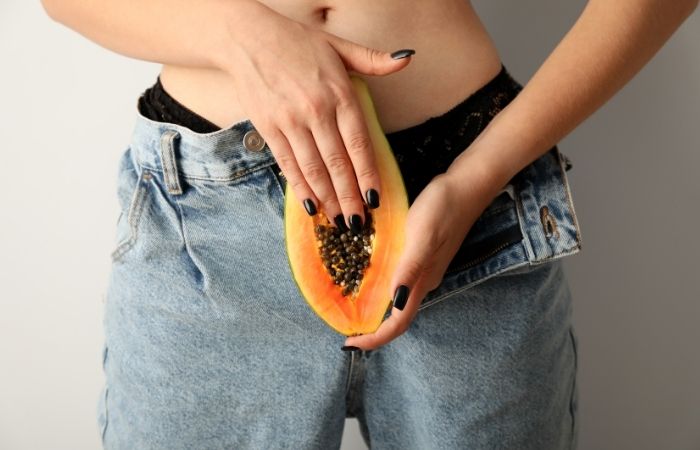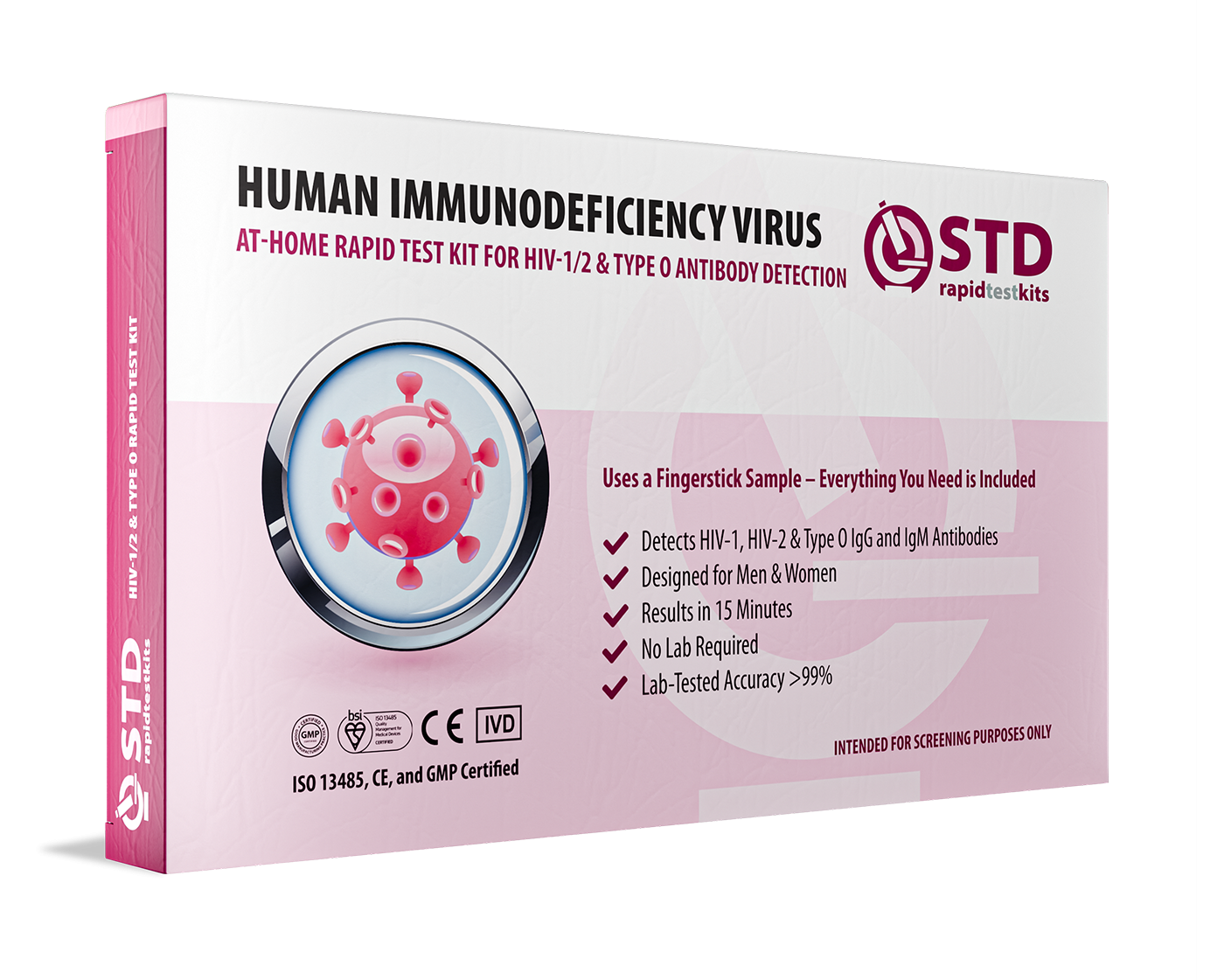How Public Health Campaigns Are Fighting STD Stigma and Encouraging Testing
The Truth About Masturbation and STD Transmission
First things first: masturbation by itself can't make you get an STD. Sexually transmitted diseases by definition are transmitted via sexual contact, i.e., person-to-person contact involving fluids, skin, or mucous membranes. If you're not having contact with someone else, then you're not at risk for contracting an STD in the traditional sense.
But like all things in life, the real answer is not really a yes or no, it's more complex.You can be at risk if:
- You exchange sex toys and fail to clean them.
- You use items with body fluids on them (yours or someone else's).
- You masturbate together and there is fluid exchange through mutual touching or handling.
- You add saliva or other lubricants that might be carrying pathogens.
Thus, although solo masturbation is technically safe against STDs, the manner in which you do it and with what you do it may unlock doors to dangers you haven't even realized.

Why Safe Masturbation Remains Important
If you're thinking, "But I'm alone, why should I worry?" here are a few excellent reasons why masturbation hygiene remains important.
Top Benefits of Safe Solo Play
- Peace of Mind – Knowing you're doing it safely minimizes stress.
- Prevention of Bacterial Infection – Dirty hands, sex toys, or paraphernalia can bring about UTIs or bacterial infections, although not technically STDs.
- Protection for Future Partners – Good habits now mean less risk if you ever share those toys or practices.
- Improved Self-Knowledge – Understanding your body safely allows you to advocate for your health.
"Masturbation is one of the safest forms of sex, if you do it cleanly and responsibly." – Planned Parenthood
Potential Risks That Are Easily Forgotten
So if you can't technically catch chlamydia from your hand, what exactly are you supposed to be keeping an eye out for? Here's what some people forget:
Shared Sex Toys = Shared Risk
If you and your partner are sharing toys and not cleaning them or putting condoms on them, you're giving bacteria, viruses, and fungi a road to travel back and forth.
Skin-to-Skin Contact
Even mutual masturbation still involves skin contact. STDs like herpes or HPV are transmitted by skin, not just fluids. That means even touching or rubbing infected skin may be dangerous.
Open Cuts or Sores
Got a minor cut on your genitals or hand? If you have contact with infected fluid, even from shared masturbation, it can be passed.
Saliva Isn't Always Safe
Got a saliva-based lube going on? It might be natural, but it might contain viruses like herpes or even hepatitis B if you're sharing with someone. The bottom line? It's not paranoia, it's being prepared.
Check Your STD Status in Minutes
Test at Home with RemediumGenital & Oral Herpes Test Kit

 For Men & Women
For Men & Women Results in Minutes
Results in Minutes No Lab Needed
No Lab Needed Private & Discreet
Private & DiscreetOrder Now $75.00 $98.00
For all 2 tests
How to Keep Masturbation Safe and Risk-Free
Let's keep it simple. If you want to keep your solo or partnered play safe, here are some easy tips:
- Wash those hands before and after.
- Clean sex toys after use (soap and water is okay, but toy cleaners are better).
- Use condoms on toys when sharing or switching between partners or body parts.
- Avoid broken skin or sores during play.
- Don't use random objects that weren't made for internal use. (Seriously, just don't.)
Pro tip: If you’re using lube, choose a clean, water-based or silicone option, not saliva, not food, and definitely not oil if you’re using latex protection.
The Numbers Behind the Myths
You might be surprised to know how often this question gets asked, and how rarely it’s answered well.
- According to a 2023 study by Healthline, 15% of people under 30 believed masturbation could “cause STDs.”
- On internet forums such as Reddit, thousands of yearly posts reveal confusion regarding safe solo sex and contamination fears.
- Planned Parenthood and Verywell Health both emphasize that misinformation leads to riskier behavior, not safer.
- And while solo masturbation remains the safest sexual act, it's sure that people don't have a clue about what "safe" actually is.
What the Experts and Real People Say
Let's hear it from the experts and real people.
Dr. Linda Mohr, an infectious disease doctor at a Boston public clinic, says:
"The most prevalent myth is that bodily fluids somehow 'infect' you without so-called contact with another human. Unless there's cross-contamination, masturbation is not a risk for STDs. But if fingers or toys are employed in mutual use, one should exercise caution."
In contrast, users on forums like Go Ask Alice and Reddit tend to share stories about freak-outs once they've discovered redness, irritation, or discharge, only to find it was due to friction, allergies, or poor hygiene, and not STDs.

Case Study
One young woman complained of distress after masturbating with a fragrant lotion and believed she had an STD. After a trip to the clinic, she learned it was simply an allergy. This is an example of how lack of knowledge can lead to excessive concern.
The History of Masturbation and STD Fears
Let's have a quick history aside, because, as it happens, fear of masturbation is not new. It's been around for centuries.
Way back in the 18th and 19th centuries, masturbation was blamed for everything from blindness to insanity. Doctors and clergymen both warned that self-stimulation would ruin your health, your morals, and your future. Even the medical condition "masturbation insanity" was named in early psychology textbooks.
With the arrival of sex ed, all those myths were deflated, but every single one disappeared. Nowadays, some still believe that masturbation may cause disease or infection, and that can inform how they (or don't) behave sexually.
STDs, however, have been a cause of fear and shame for ages. Couple that with the remaining taboos about masturbation, and it's no surprise that the two continue to be wondered about whether or not they're related.
To know the history is to recall where the misinfo comes from, and why it's so important to sexualize health as fact-based, not fear-based.
The Future of Sexual Health Conversations
Fast forward to today, and tomorrow. Conversations about masturbation, STDs, and personal health are getting more honest, more open, and way more fact-based. Here’s what we’re seeing:
- Better sex education is including solo sexuality as part of healthy development.
- Telehealth and at-home STD testing are making it easier for people to get answers without shame or awkward appointments.
- Public health campaigns are fighting back against myths, especially among young adults who get the majority of their information from social media.
The future of sexual health isn't just preventing disease, it's creating a culture of knowledge, honesty, and care. And that means talking about masturbation as the natural, normal thing it is.
Check Your STD Status in Minutes
Test at Home with RemediumHIV Rapid Test Kit

 For Men & Women
For Men & Women Results in Minutes
Results in Minutes No Lab Needed
No Lab Needed Private & Discreet
Private & DiscreetOrder Now $33.99 $49.00
How to Apply This Knowledge in Real Life
Alright, let's keep things in perspective. What are you going to do with all that you have just read?
Practical Takeaways
- Relax – You won't catch an STD from masturbating by yourself.
- Clean up your act – Wash your hands and toys, and steer clear of the high-risk items.
- Discuss with your partners – If mutual masturbation is something that happens in your sex life, make safety protocols a mutual understanding.
- Don’t panic over irritation or changes , Check your hygiene first, then talk to a doctor if something feels off.
- Get tested – If you’ve had other sexual activity or any doubts, it’s worth getting checked.
Masturbation is a part of life for many people. Knowing how to do it safely and confidently is a win not just for your health, but your peace of mind, too.
The Impact on Healthcare and Sexual Wellness
Health care workers are realizing sexual health is about more than sex. That means:
- Clinics are teaching patients about all types of sexual activity, including masturbation.
- STD prevention strategies now include hygiene and toy-sharing habits.
- Sex therapists are helping people to overcome old shame and learn better lifestyles.
Medical professionals are treating friction injuries, allergic responses, and hygiene-borne infections, all of which are misdiagnosed as STDs.
This shift is redefining how we talk about health, not just in tests, but in learning, counseling, and even product design. The more we understand about masturbation and its role in our sex lives, the smarter and safer our choices are.

Real Stories: When Confusion Becomes Clarity
To illustrate this, let's hear from a few more people:
Jake, 22
"I thought I had an STD 'cause it was looking red down there. I freaked and got a test, out came it was from not washing my toy properly. Shameful? Yeah. Helpful? For sure."
Maria, 27
"I grew up hearing that masturbation was dirty. When I got an infection, I was guilty. Now I know it was just a cleanliness issue and not something I should be ashamed of."
Toni, 34
"My partner and I share toys. We started putting condoms on them to avoid risk, problem solved, no more infections."
Their experiences show how fast a misperception can turn into concern, and how knowledge can reverse it.
FAQs
1. Can I get an STD if I touch myself?
No way! Masturbating by yourself isn't any risk for STDs unless you introduce dirty liquids or toys into the situation.
2. If I had touched another person in skin-to-skin contact before I masturbated, can that be dangerous?
If their stuff is on your hands and then you touch yourself, yeah, that could be dangerous.
3. Do toys pass STDs?
Yes, if shared and not disinfected after use.
4. Does over-masturbating weaken your immune system?
There is no proof that it affects your immune response at all.
5. Can one contract a UTI from masturbation?
You could if you're using dirty objects or spreading bacteria near the urethra.
6. Do I need to wear gloves or protection during masturbation?
Unless you are swapping objects or have cuts. Hand washing and toy washing should be enough.
7. Is it normal to be concerned about STDs after masturbation?
Yes, if you have been exposed to misinformation. But actual risk is extremely low for solo masturbation.
8. What does it mean if I feel redness or burning afterward?
Most likely irritation or friction. If they persist, see a doctor to make sure there are no infections.
9. Can one get herpes or HPV from mutual masturbation?
It is possible transmission may occur with skin-to-skin contact when you have a shedding partner.
10. How often should one test?
If you've slept with others, period, or unsure, it's always better to test and know.
Stay Safe, Stay Informed: Masturbation and Your Sexual Health
Masturbation is not something to be feared, it's something to be taught. Done safely, it's a stress reliever, a source of pleasure, and an extremely effective way of discovering your own body.
But with anything health-related, the key is information.
By cutting through myth and reality, we reduce anxiety, promote safer behaviors, and urge others to do the same. So if you ever wonder? Get tested, stay clean, and don't hesitate to ask questions. You're not alone, and you're not mistaken for wondering.
Because staying safe isn't all about sex and condoms, it's about the little things too. Like washing your hands, asking questions, and passing on what you learn.
When it comes to sex, being curious is the most responsible thing you can be.
Sources
1.- Can You Get an STI From Masturbating? - Verywell Health
2.- You Can't Contract an STI from Masturbation: 8 FAQs - Healthline
3.- Can I get an STI from masturbating? - Go Ask Alice!
4.- Can you get an STD by masturbating with objects? - Planned Parenthood
5.- Yes, You Can Contract an STD Without Having Penetrative Sex - Healthline










